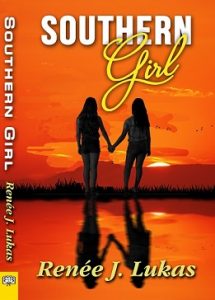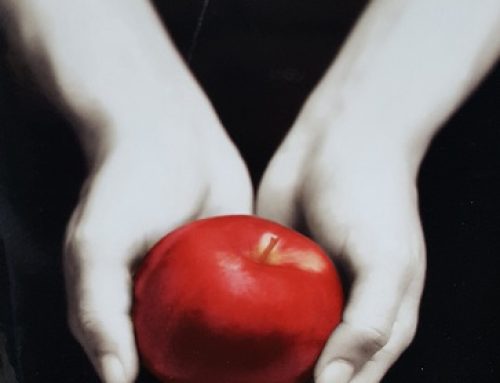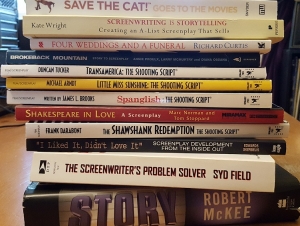by
Renée Lukas
 A group of teens getting together to talk about their crushes is typically no big deal. But for one hour every Saturday, it was an act of great courage for a group of teens I once knew. LGBT and questioning teens.
A group of teens getting together to talk about their crushes is typically no big deal. But for one hour every Saturday, it was an act of great courage for a group of teens I once knew. LGBT and questioning teens.
Several years ago I’d volunteered to be a facilitator for an organization that helps at-risk LGBT youth —listening to their feelings and concerns. But the most challenging part of my training was that I couldn’t give my opinion on anything. I had to simply listen.
Anyone who knows me will tell you that’s nearly impossible.
Most of these teens were enthusiastic, creative, high-spirited—many with big career ambitions. They would talk about crushes they had, and their eyes would light up in that unmistakable way you do when you’ve fallen in love for the first time. For straight teens, it’s a rite of passage, an innocent new joy that our culture embraces the moment it’s experienced: “Aw, isn’t that cute? She’s got herself a boyfriend.” Or “Aw, it’s his first girlfriend!”
But for these LGBT teens, their dreamy smiles would be diminished the moment somebody talked about religion. It was the issue that kept coming up time and time again, snuffing out their happiness. They got the message: God loves you, unless you’re gay. Or my least favorite, “Love the sinner, hate the sin,” which, for most of us gay people, sounds more like, “I love you, but I hate your face.”
It’s no wonder these teens couldn’t reconcile their religious faith with their feelings of joy. Instead of experiencing love for the first time, they felt shame and guilt and self-loathing, believing that, according to their religion, they were somehow disgusting. And I had to keep my mouth shut.
So what did I do? I listened. I tried to be supportive. Then I wrote a book.
Many years later, I wrote Southern Girl. It’s the story of two girls who fall in love in a small Tennessee town, and one of them is the daughter of the town preacher. The girls keep their relationship a secret until a jealous classmate discovers the truth and threatens to betray them.
In this story, I don’t preach, pardon the pun, about what I believe. Instead, I put it to readers to make up their own minds.
They always tell you never to discuss religion or politics in mixed company. Southern Girl doesn’t follow those rules. It head-butts religion right out of the gate, and I think that’s a good thing. If we can’t talk about something, change will never happen.
What Makes Southern Girl Different
To the casual reader, the description of Southern Girl sounds like a typical coming-out story. What isn’t typical is that the story takes place in a small town in Tennessee during the 1980s, the decade I grew up in. For those of us who remember, this was a decade of major contradictions—we had gender-bending pop stars like Boy George and Annie Lennox, and Ronald Reagan as president. Pop culture was flirting more with gay themes, however subversive. All you have to do is watch the video for “You Spin Me Round (Like a Record)” by Dead or Alive to see how strange that image would seem to southern Christian conservatives. The late Pete Burns, the lead singer, was beautifully androgynous, and in real life my dad did actually say something like, “If you like him, I’m scared to see who you’re going to bring home.” We still laugh about that now. So Southern Girl depicts the contradiction between gender-bending and the pressure to conform to conservative values in daily life.
Another daring thing about this story is the way the Bible is held under a microscope, when Stephanie, Jesse’s girlfriend, challenges her with questions. Why are some passages revered while others are discarded? If a man “shall not lie with another man,” then why aren’t we also stoning adulterers? Or thinking twice before eating that shrimp cocktail? Critical thinking is discouraged in this small, claustrophobic town, where even Jesse’s basketball coach lives in constant fear of being outed.
Regional differences are also explored. For example, Jesse’s mother, originally from Boston, struggles to make a life in a southern town where she never feels fully accepted. In real life, both my parents were transplanted northerners—having grown up on the North Shore of Boston. Everyone in Tennessee told them they talked funny. They’d go into department stores, and salespeople had no idea what they were asking for. It became a running joke in our family. When my mom took a Home Economics class, everyone was horrified when she boiled a lobster. These moments always stuck with me and provided an added layer to the story—about our universal need for understanding.
Luckily, I grew up in a college town, so it wasn’t quite so suffocating an atmosphere as the town described in the book, where a preacher seems to set all the rules.
Can a Book Change Minds?
We’re living in a more precarious time than ever. Our Supreme Court is inches away from being able to overturn laws that ensure our equal rights—both for LGBT citizens and women. Our so-called “leadership” (I won’t say his name) has emboldened bigots to crawl out from under their rocks and openly declare their prejudice. Once again, LGBT youth is sent a message: Because of religious beliefs, they may be turned away from getting a cake to celebrate what should be the most joyful time in their lives. I sort of feel like I need to say it again—gay marriage IS legal in this country. Yet once again, joy is snuffed out by religion or simply by prejudice masquerading as religion. Either way, the two—Christianity, as well as many other religions, and homosexuality—never seem to go together.
Interesting, though, how Jesus always seemed to hang out with those who were hated by society. It seems to me that if he showed up today, he’d be embracing the “other” in our society, those who still have to fight for their rights.
Of course I may be biased, but Southern Girl is THE book to celebrate Pride Month, because it allows two characters to triumph against unbelievable odds and proves that you can still have joy in your life, in spite of what you’ve been taught.
Renée Lukas is the author of four novels: The Comfortable Shoe Diaries, Hurricane Days, Southern Girl and In Her Eyes (Bella Books). She’s also a screenwriter and Academy Nicholl Quarterfinalist.



